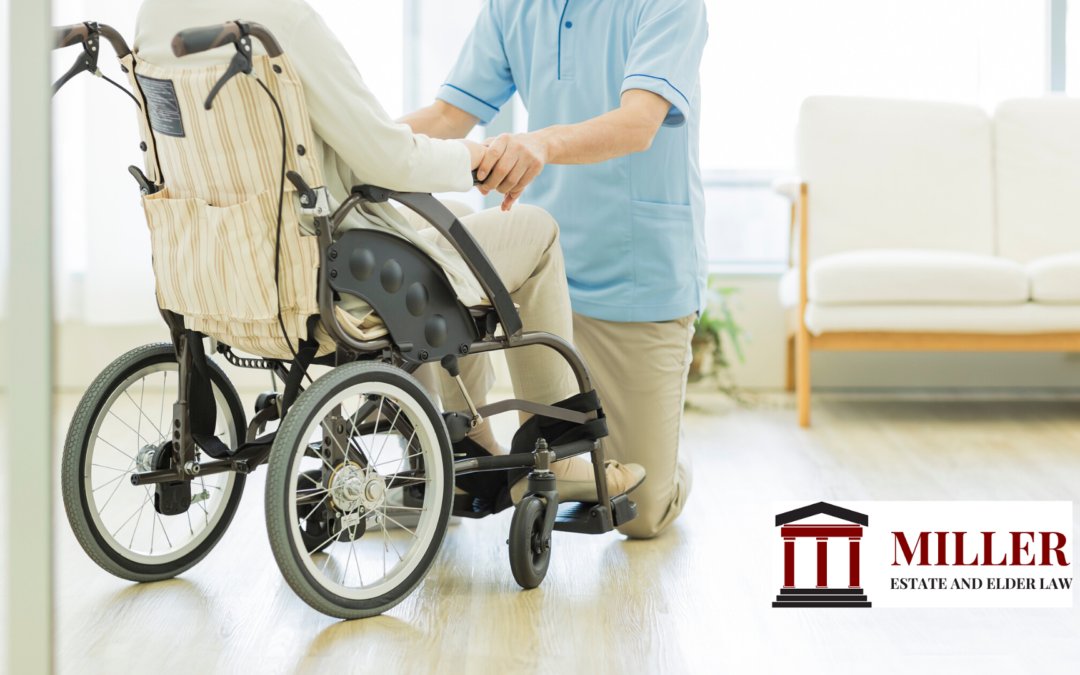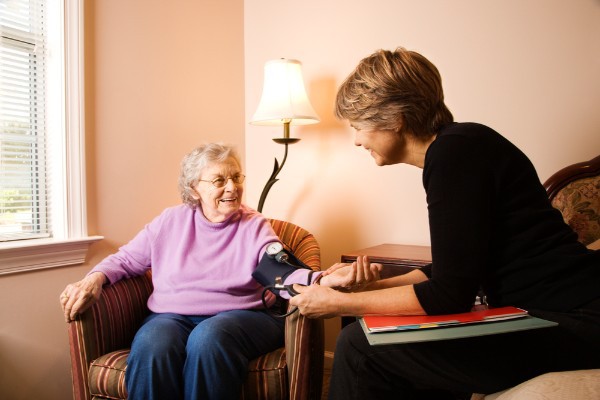
by Bill Miller | May 15, 2020 | Blog, Long-Term Care, trust
According to LongTermCare.gov, almost 70% of people who are 65 years of age at this time will need long-term care at some point in their lives. Such care is expensive and could deplete a lifetime of savings in just a few years. People may be able to both pay for their long-term care and leave money for their heirs by establishing trusts for long-term care planning.
Medicaid Requirements
Many people hope that Medicaid will pay for their long-term care. However, Medicaid only pays for people with limited income and few resources. Applying can be difficult as applicants are required to submit numerous supporting documents.
Another important thing to remember is the Medicaid 60-month look back period. Medicaid reviews an applicant’s financial records for the 60 months before the date of application. Financial transactions made during that time, including transfers to a trust, may cause a delay or reduction in benefits. That’s one reason it’s important to start planning now. A trust may be in your future.
Irrevocable Trusts for Long-Term Care Planning
Please note that there are two general types of trusts: revocable and irrevocable. Revocable living trusts are common. However, they typically do not provide any kind of asset protection and are not helpful for long-term care planning.
Instead, consider establishing an irrevocable trust. This type of trust transfers control of the grantor’s assets to a trustee. In effect, the grantor no longer owns the trust assets. Medicaid generally does not count the funds in an applicant’s irrevocable trust toward the applicant’s resource or income requirements.
Plan Ahead to Pay for Long-Term Care
We don’t know what the future holds or how long it will be until we need long-term care. To prepare for your future, talk to an attorney about trusts for long-term care planning today.
The attorneys at Miller Estate and Elder Law assist their clients with Medicaid and long-term care planning, as well as general estate planning. Contact Bill Miller at 256-251-2137 to schedule an appointment. Though our office is now located at 818 Leighton Avenue in Anniston, we serve clients in Gadsden, Hoover, Talladega, Vestavia Hills, and surrounding areas.
Also, download a copy of our free e-book, Don’t Go Broke Paying for Long-Term Care, by clicking here.

by Bill Miller | May 4, 2020 | Blog, Elder Law, Uncategorized
Did you know May is National Elder Law Month? This month holds special importance to us as we support all Alabama seniors, their loved ones, and their caregivers. We know that you and your family may need extra help not only this month, but throughout the year. One of our goals as a firm is to ensure that you are protected in all circumstances. We want to ensure that you have the help, guidance, and resources you need now, and throughout the year.
Unfortunately, many Alabama seniors and their loved ones have only taken the step to complete their estate planning. While estate planning is essential, it is not elder law planning. Estate planning contemplates both lifetime and end-of-life decisions. For example, you can make a document such as a durable power of attorney that can ensure that you have a decision maker with legal authority in place in the event you cannot make decisions for yourself. Or, by contrast, you could make a last will and testament that directs who should inherit from you at the time of your passing.
The same tools, however, do not necessarily protect you by addressing elder law concerns. Elder law, sometimes referred to as elder care law, is a relatively new area of law. It primarily addresses the issues that can arise as a result of the aging process. For example, should you need long-term care:
- How will you find the right care for you?
- How do you know what to look for?
- Can the services you need be provided in your home?
- Further, if you were to need to move to a long-term care facility, would you be able to pay for it?
Many of us do not have unlimited resources. This means, without elder law planning, we would be at risk of losing all of our assets and impoverishing our loved ones if we had to pay for the high cost of nursing home care without assistance.
We know these may be considerations that you have never thought of before. This National Elder Law Month, let us take a moment and share information on three critical areas addressed through elder law planning that you need to know for yourself and your family.
1. Alabama Medicaid. Medicaid is a combination of state and federal dollars that you may be able to access to help you pay for the cost of long-term care. Know that Medicaid is not Medicare. While all seniors are eligible for Medicare this is not the same thing for Medicaid. Medicare is a health care program that can help most seniors defray the cost of acute medical care. Medicaid, by contrast, is an eligibility program that can help pay for custodial care in a nursing home. You must qualify through a health, income, and asset test to be able to access these valuable resources, which we can discuss with you in a consultation at our firm.
2. Family Caregivers. Family caregivers are the unsung heroes in America. Family caregivers are often under-appreciated and unpaid for the services that they provide. Further, without the guidance of an elder law attorney, you may be paying your family caregiver for his or her much-needed help, but jeopardizing your ability to access the benefits of the Medicaid program. This is one of the things that we can discuss in a meeting at our office. The most important thing is for you to know that you are not alone. You can click this link to learn more about how to best manage this new responsibility in your life and how to help yourself and the aging senior you are caring for.
3. Veterans Affairs Pension Benefits. For wartime veterans and their dependents, there are additional benefits available through the department of Veterans Affairs. One such benefit is the pension program. This is a monthly, tax-free benefit that is available to qualifying Alabama seniors. Similar to Medicaid, there is a health, income, and asset test as well.
We know this article may raise more questions than it answers. We encourage you not to wait to learn more about the benefits and resources available to Alabama seniors now, or at any point in the future. Do not wait to schedule a meeting with attorney Bill Miller to discuss your questions and learn how to protect yourself and your family.

by Bill Miller | Apr 6, 2020 | Blog, Estate Planning, Long-Term Care
Long-term care, should you require it as you age, is a significant expense. Depending on where you live, the cost of a skilled nursing home can be well over $100,000 a year or more, and this is for a semi-private room. Medicare only pays under certain circumstances and in limited amounts, which surprises most Older Americans and their loved ones to learn. Further, if you have savings and investments, you might not qualify for the public benefits programs that can help you pay for the care you need such as the Alabama Medicaid program.
If you have not thought too much about long-term care, you are certainly not alone. Even if you are well-off enough to think you do not really need to put money aside for such costs, you do not know what is going to happen in the future, and most families cannot accurately predict how much it is going to cost.
A study published by the Department of Health and Human Services shares that 48 percent of all Americans over the age of 65 will need long-term care outside the home for up to one year. Nineteen percent will need it for up to 24 months, and more than 21 percent between two and five years.
For most of us, we want to create an estate plan that is focused on two main aspects:
- Lifetime protection, which safeguards you and your assets should you be in a crisis and need a decision maker with legal authority to act.
- Creating a legacy that will live on with your family members after you pass.
There are many ways you can start to address long-term care needs in your estate plan when you work with an elder law attorney. Your elder law attorney can provide a comprehensive strategy that addresses all of your health and legal needs, assuring you of the best possible care and protection should you need it. Long-term care planning can be incorporated into your overall estate plan so that it includes lifetime protections that contemplate a potential need for custodial care when you discuss your concerns with your attorney.
When we are healthy and in our prime, we do not often think about the big “what ifs.” Long-term care, as well as the threat of critical illness, is generally the last thing on our minds, even if we already have an estate plan in place. Most people think of estate planning as something that settles your affairs after you are gone, but know that it can also help you live better in life. Estate plans that consider long-term care will protect your assets and can ensure your legacy is intact should you need to be in a nursing home for any length of time.
We know this blog may raise more questions than it answers. Do not wait to contact our law practice to schedule a meeting to discuss your concerns today, or any time in the future.

by Bill Miller | Mar 18, 2020 | Aging Parents, Blog, World News
We know that you and the Alabama seniors you love may have concerns right now. We also know that uncertain times can put all of us on edge. Often, even when we are inundated with information, the right knowledge from a trusted source can put our minds at ease. We can no longer ignore the fact that the COVID-19 virus (coronavirus) is spreading at an alarming rate around the world. Even with its unprecedented spread, however, there are still many precautions that we can take right here in Alabama to protect you, as well as your loved ones.
By now we are all familiar with the most popular precaution which has been shared by the various health authorities around the world:
Make sure that you properly wash your hands!
What does it mean to “properly” wash your hands? This means meticulously cleaning your hands for at least twenty (20) seconds with soap and water, or an alcohol-based hand rub. You may find it interesting to learn that, according to the FDA, “the benefits of using antibacterial hand soap have not been proven.” Washing your hands remains one of the best preventative measures that you can implement to safeguard yourself and your elder loved ones. In addition, according to the World Health Organization (WHO) washing your hands helps to kill viruses that may be on your hands.
Let us share a few other suggestions from the WHO.
1. Maintain social distancing. Maintain at least 1 meter (3 feet) distance between yourself and anyone who is coughing or sneezing. This one is especially important because it is easy to breathe in the droplets of someone who is suffering from the COVID-19 virus. This is true for most viruses like the flu.
2. Avoid touching eyes, nose and mouth. Remember, especially for our younger loved ones, touching many surfaces can cause you to pick up viruses. WHO states that, “once contaminated, hands can transfer the virus to your eyes, nose or mouth. From there, the virus can enter your body and can make you sick.”
3. Practice respiratory hygiene. How do you practice respiratory hygiene? Cover your mouth and nose with your bent elbow or a tissue when you cough or sneeze. Dispose of the used tissue immediately.
4. Help “at risk” loved ones limit interactions with those who may be infected. First, understand who may be at risk using this article we want to share with you. Although social isolation can be hard, help these individuals try to make informed decisions about where they truly need to be. Routine check up? Maybe postpone it until the virus is under control as very ill people could be in the waiting room. Although these decisions are up to you and your family, think about how to best keep everyone’s health intact.
Another important precaution that can help everyone around you is to stay home if you feel unwell. Further, if you have a fever, cough and/or difficulty breathing, do not wait to seek medical attention. Be sure to call your healthcare provider in advance, if you can.
The last tip we will share is also extremely important as we continue to battle this deadly virus. Make sure that you stay informed and follow any advice given by your healthcare provider. Do not rely simply on the news or secondhand information. Staying up to date can arm you with the right information to make the best decisions for yourself and your loved ones.
If you would like to learn more about how you can protect yourself and your loved ones check out this WHO article that goes into detail about preventative measures that we can follow in the fight against COVID-19. Know that we are here for you, both now and in the future. Do not hesitate to contact our law practice to learn more about how to protect and advocate for yourself and those you love.

by Bill Miller | Mar 2, 2020 | Blog
Even though February and Valentine’s Day is over, the threat against Alabama seniors continues to be on the rise. In fact, did you know that scammers and cyber criminals often target senior citizens when perpetrating financial crimes? Online senior scams have become so prevalent that they are considered “the crime of the 21st century.”
Why? There are several different factors. Older Americans are believed to be more vulnerable, are known to often have large amounts of money in accessible accounts, and the internet makes it easy for bad actors to find them, and fool them. To make matters worse, scammers tend to target seniors when they are most vulnerable. Valentine’s Day demonstrated to us, again, just how aging adults suffering from loneliness and social isolation are at elevated risk.
How can you protect yourself as a senior? Or a senior that you love? Let us share nine tips you may use to avoid a “lonely heart” senior scam.
1. Online cyber criminals looking to execute romance scams are likely looking for older victims on social media, online dating or friendship websites. Be cautious of anyone you do not know who contacts you online. What you see may not be who you are really dealing with.
2. Here is a golden rule: Seniors should always be suspicious whenever someone online attempts to gain their trust and affection if they have not met in-person.
3. Older Americans, or anyone for that matter, should never provide their personal information or send money to someone who tries to convince them to do so on social media, email or any other online forum if they do not already know them in their off-line lives.
4. Be extremely cautious if someone you meet on social media, like Facebook, wants to quickly move to a private form of communication such as text or email.
5. Never send intimate photos or videos of yourself. A scammer may use them to try to blackmail or embarrass you.
6. If you do plan to meet someone you met online, which is generally not a good idea, then make sure to tell your family, friends, and caregiver. Bring someone with you and meet the person in a public place.
7. Scammers often work on several victims at once. If they address you by the wrong name, it may be a telling sign that something is wrong.
8. If you think you are in contact with a potential scammer, tell family, friends, caregivers and neighbors immediately about your experience. Do not let embarrassment get in the way of protecting yourself.
9. If you believe you have fallen victim to a Valentine’s Day romance scam, it is never too late to call the police and your appropriate financial institution. Let them know what happened so they may get involved and protect you.
We know this blog may raise more questions than it answers. We want you not to wait to learn more about this critical issue facing all of us, but most importantly Alabama seniors. Remember, being prepared is the best defense you can have in place. We encourage you to schedule a meeting with an estate planning and elder law planning attorney so you may create the tools that can protect you now, and in the years to come.

by Bill Miller | Feb 29, 2020 | Blog, Long-Term Care, Nursing Home
Frank and Delia were getting older, as most people do. Their life together had included raising three children and providing support for their parents before they passed away. Because of how much care their parents needed at the end of their lives, Frank and Delia were concerned about their own future medical care. They decided to be proactive and start to plan for long-term care situations now.
Long-Term Care Options
People faced with a need for increased levels of care have several options:
- In-home. Aides may come in with meal preparation, cleaning, medication management, and personal hygiene.
- Assisted Living Facilities. The residents live in separate apartments, but limited nursing care is provided.
- Nursing Homes. Skilled nursing facilities typically offer 24/7 care for patients that need it.
As you start your plan for long-term care, consider the following:
Research Current Availability and Cost
It may be years before you need long-term care. However, you can start looking at what might be available.
The least expensive option is usually at-home care. In the Anniston area, the average monthly cost was $2,955 for homemaker services in 2018. Perhaps you have family members who can help you stay home as long as possible and reduce the cost of care.
In Anniston, the average monthly cost for assisted living facilities in 2018 was $3,566. If you don’t need memory care or 24/7 nursing, this might work. Check with family members, friends, and friends-of-friends who live in and can recommend assisted living accommodations.
As you might expect, the highest cost will be for nursing home care. Average 2018 cost in Anniston was $6,175 for a semi-private room and $6,449 for a private room. See what nursing homes are nearby. In addition to word of mouth, you can check the Alabama Department of Public Health website for lists of nursing homes with violations.
Once you have some ideas of available care, you can plan how to pay for it.
Methods of Payment
Generally, you will find there are three ways to pay:
- Self-Pay. Your life savings may be used to pay for expensive long-term care.
- Long-Term Care Insurance. Although this type of insurance can defray the high cost of long-term care, the premiums may be too high. It’s also important to buy the policy well before you need it.
- Medicaid and Other Government Benefits. You may be able to tap into Medicaid to pay for part or all of your long-term care . . . if you qualify. Eligibility rules are strict. If there’s a possibility you will need Medicaid, consult with an attorney now.
Talk to an Experienced Attorney about How to Plan for Long-Term Care
There’s a good possibility that you or one of your loved ones will need some form of long-term care. Doesn’t it make sense to plan for it now?
For a free consultation with Bill Miller, an experienced Alabama attorney, contact us at 256-472-1900. Miller Estate and Elder Law is now located at 818 Leighton Avenue in Anniston, but we serve clients in Gadsden, Hoover, Talladega, Vestavia Hills, and surrounding areas.
Also, free copies of the following guides are available on our website: Medicaid Planning in Alabama: What You Need to Know and Don’t Go Broke Paying for Long-Term Care.





